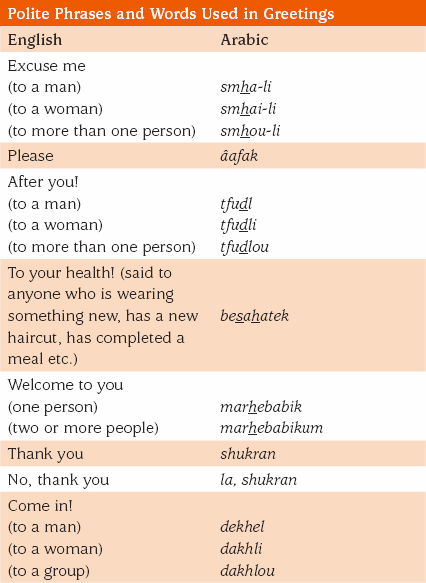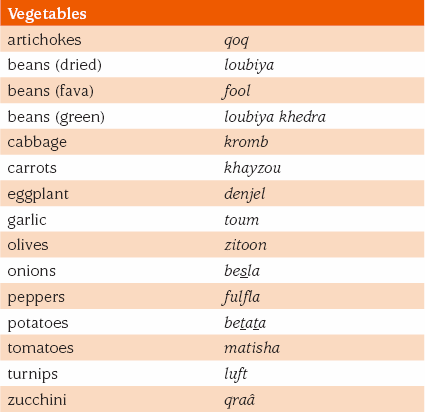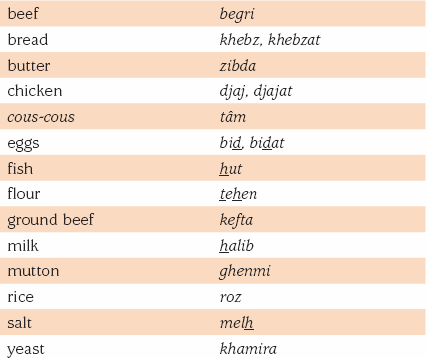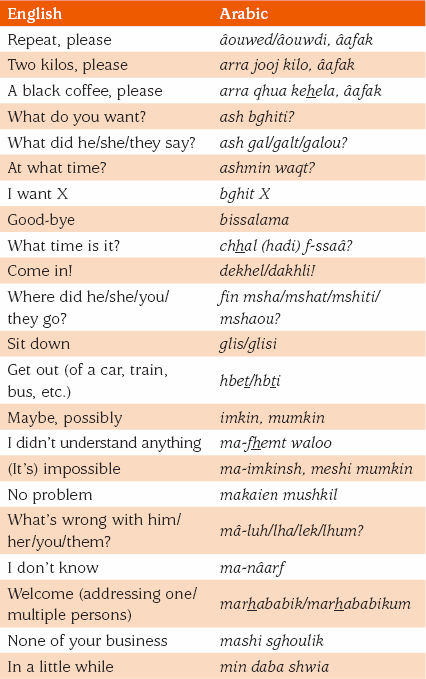
This section is not intended as a substitute for a phrasebook or a language course, but you may find useful words and phrases here for situations that you are likely to encounter. Variant forms are given where there is a difference according to the gender or number of people spoken to. Refer to the pronunciation guide on pages 222–225 for the following words and phrases. See also pages 226–231.
:

Here are the names of some common foods that you may want to order in a restaurant or buy to prepare yourself. To find out whether a shopkeeper (or waiter) has something, prefix ‘wesh ândek’ to the item: thus, wesh ândek djaj means ‘have you got chicken?’ To ask how much something is, prefix ‘Be-shhal’ to the item: Be-shhal khebza (how much is a loaf of bread?)
To order something, prefix ‘Ara’ to a number or quantity (if required), followed by the name of the item: ara dellaha, aâfak (give me a watermelon, please), ara kilo diel aâneb, aâfak (give me a kilo of grapes, please). ‘Diel’ corresponds more or less to English ‘of’. All Arabic words are the collective name. To singularise (i.e., to order only one of something), add terminal ‘a’.

For the following staple foods, the collective name is given in Arabic. Where two forms are given, it is the collective followed by the plural. To indicate a single item of one of these, add ‘a’ to the end of the word. Thus, khebz means bread, and khebza means a loaf of bread.

This is a list of some of the commonest phrases and expressions in Moroccan Arabic. It is not by any means a substitute for a good phrase book or for language lessons, but it should help you to find a few handles on the stream of words flying by you. The arrangement is alphabetical by transcription, on the theory that you may be able to locate something here that you have heard. Multiple forms are given for person and number where appropriate. Where two forms are given without explanation, these are the masculine (used for addressing a man) followed by the feminine (used for addressing a woman).
If you know neither French nor Arabic, it is probably more practical for you to learn ‘emergency’ language (Where is there a toilet/hospital/policeman etc.) in French; it is the language that Moroccans expect foreigners to speak, resources for it are much more widely available and for the average speaker of English, it presents fewer obstacles than the Moroccan dialect of Arabic. Don’t hesitate to try English first; it is gradually catching on.
